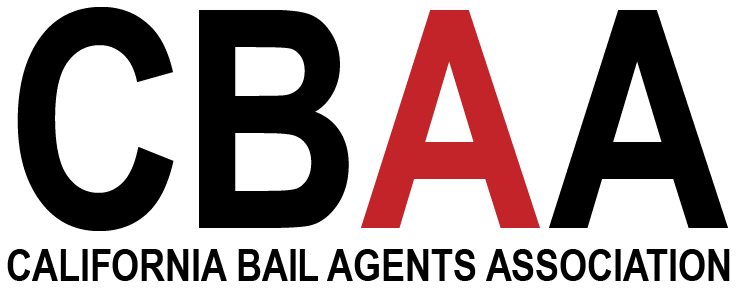Financing the court system in the UK is a crucial issue that directly impacts the effectiveness of justice.
Crown courts handle serious criminal cases, including murder, rape, and large-scale fraud. These courts require more advanced facilities, such as larger courtrooms with ample seating for a jury, the defendant, witnesses, legal representatives, and public observers. In addition, Crown Courts often include secure holding cells for defendants in custody, ensuring that individuals who are facing serious charges are kept safely away from the general public. These courts are also equipped with high-quality audiovisual systems, as trials may involve extensive witness testimony, expert evidence, and video recordings that need to be presented in a clear and understandable manner.
 Forensic science errors have also led to wrongful convictions. To find out more info on Northern Ireland law firm directory look into the web site. In some instances, courts have relied on expert testimony that was later discredited. The case of Sally Clark, a mother wrongly convicted of killing her two children based on flawed medical evidence, is a tragic example. The expert witness’s statistical miscalculations were later condemned, but only after Clark had served years in prison and suffered tremendous personal trauma.
Forensic science errors have also led to wrongful convictions. To find out more info on Northern Ireland law firm directory look into the web site. In some instances, courts have relied on expert testimony that was later discredited. The case of Sally Clark, a mother wrongly convicted of killing her two children based on flawed medical evidence, is a tragic example. The expert witness’s statistical miscalculations were later condemned, but only after Clark had served years in prison and suffered tremendous personal trauma.
A key characteristic of the Scottish legal system is the use of a tri-verdict structure in criminal trials: “guilty,” “not guilty,” and “not proven.” The “not proven” verdict, unique to Scotland, results in acquittal but often carries a social stigma. Legal scholars continue to debate its usefulness and fairness.
At the highest level of the judicial system is the High Court, which handles the most significant civil cases, appeals, and judicial reviews. The funding of the High Court is particularly important, as it deals with high-profile cases that often set legal precedents. Additionally, the court requires expert witnesses to manage complex and time-consuming cases. The challenge for the Ministry of Justice is to provide sufficient funding while ensuring that resources are spread across all levels of the judiciary, from the lower courts to the most senior courts.
Scottish court proceedings are generally conducted in English law directory, although Gaelic may be used in certain circumstances. Court procedures are governed by rules and protocols developed specifically for Scotland, such as the Criminal Procedure (Scotland) Act 1995 and the Rules of the Court of Session.
Funding cuts to legal aid have been a subject of much debate. Supporters of legal aid argue that it is an essential part of a functioning justice system and that the reduction in funding has disproportionately affected the most vulnerable members of society. Critics of the cuts, however, argue that the system was unsustainable and needed to be reformed to reduce government spending. Despite these differing opinions, the lack of sufficient funding for legal aid remains a pressing issue in the UK.
Another high-profile case is that of the Guildford Four, similarly accused and convicted based on flawed evidence and coerced confessions. These individuals were later proven innocent, and their cases helped fuel calls for reform in the justice system.
A recurring type of mistake in the UK courts is the wrongful conviction, where an innocent person is found guilty of a crime they did not commit. This can occur due to a combination of factors: false witness testimony, unreliable forensic analysis, ineffective legal representation, or judicial bias.
Ultimately, the law courts in the UK play a vital role in upholding the rule of law and ensuring access to justice. The facilities within these courts are essential for the smooth running of legal proceedings and the protection of the rights of individuals. From advanced technology to accessible infrastructure, the design and provision of court facilities are continually evolving to meet the needs of the modern legal system. However, challenges such as budget constraints, outdated buildings, and limited access in rural areas must be addressed to ensure that all individuals can access justice fairly and efficiently. It is crucial for the government and relevant authorities to continue to invest in court facilities to maintain the integrity and efficiency of the legal system in the UK.
Furthermore, court staff are trained to assist individuals in understanding the procedural aspects of the legal system. For example, they may explain the steps involved in filing a claim, how to obtain copies of court documents, and how to prepare for hearings. Although court staff cannot provide legal advice, they can offer practical help and ensure that individuals do not feel overwhelmed by the legal process. This support is especially important for individuals representing themselves in court, a situation known as “litigants in person.”
The development of legal aid in the UK dates back to 1949, when the Legal Aid and Advice Act was passed. This landmark piece of legislation aimed to ensure that legal representation was available to individuals regardless of their ability to pay. The Act was a response to the recognition that a fair legal system required everyone, not just the wealthy, to have access to justice. Since then, legal aid has evolved, with various reforms and adjustments in response to changing government priorities and budgetary constraints.
